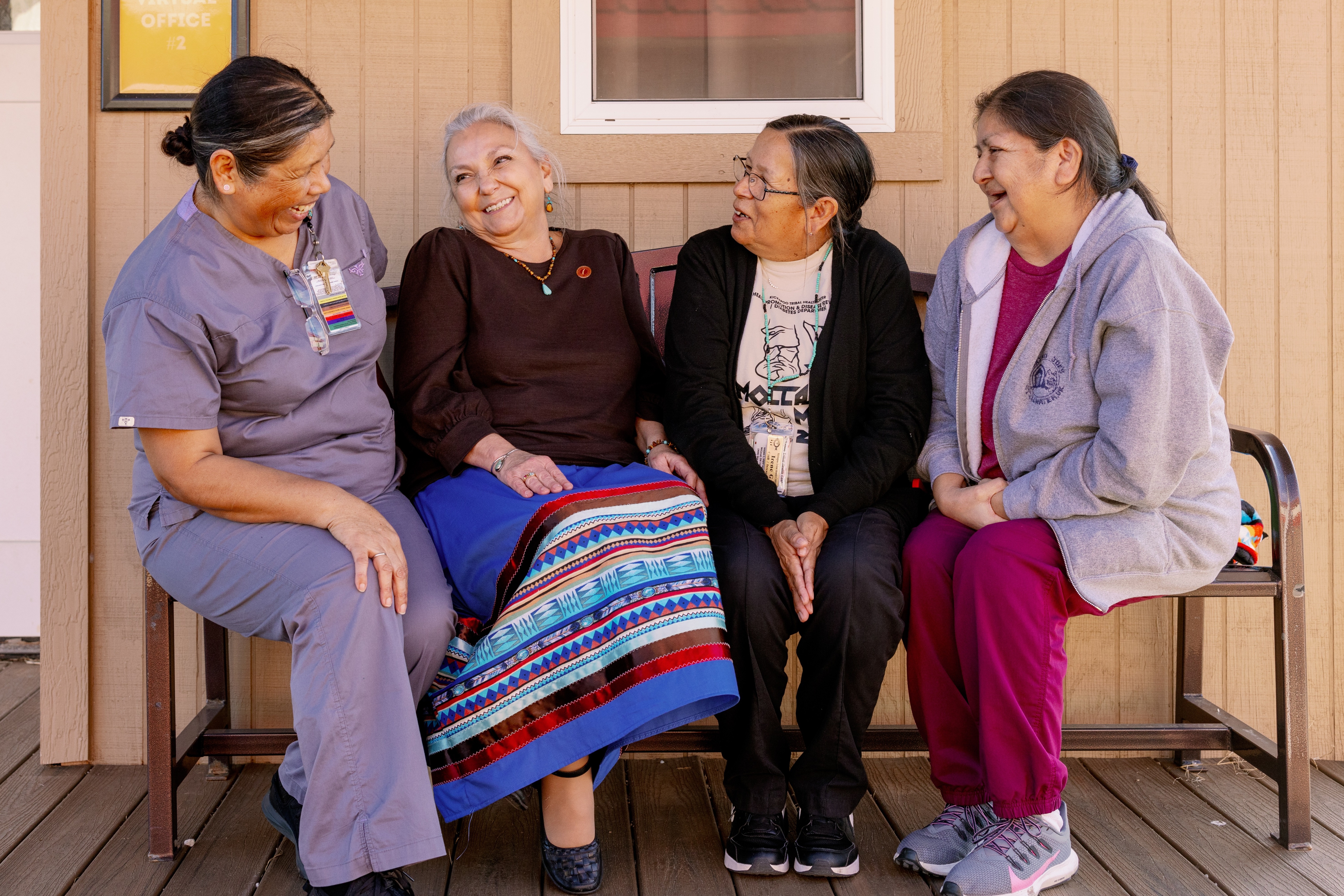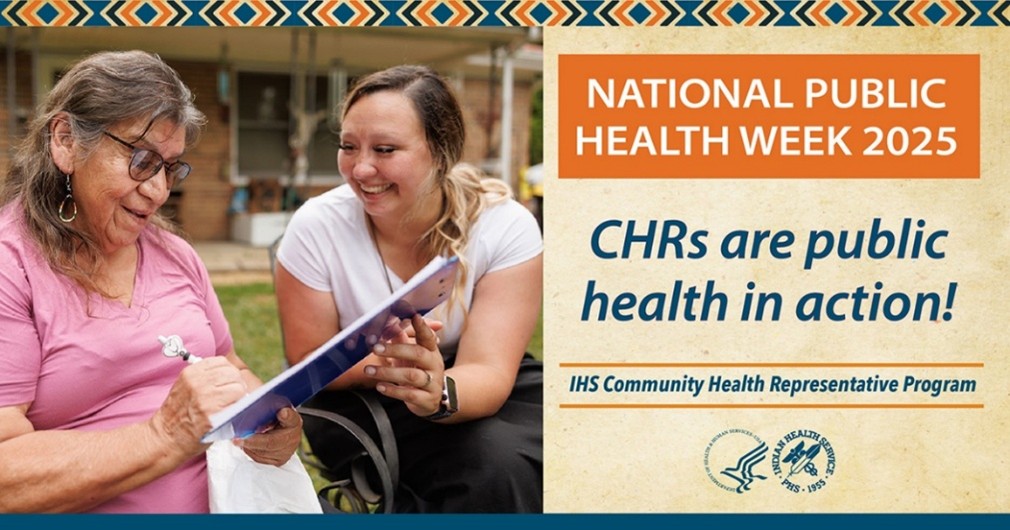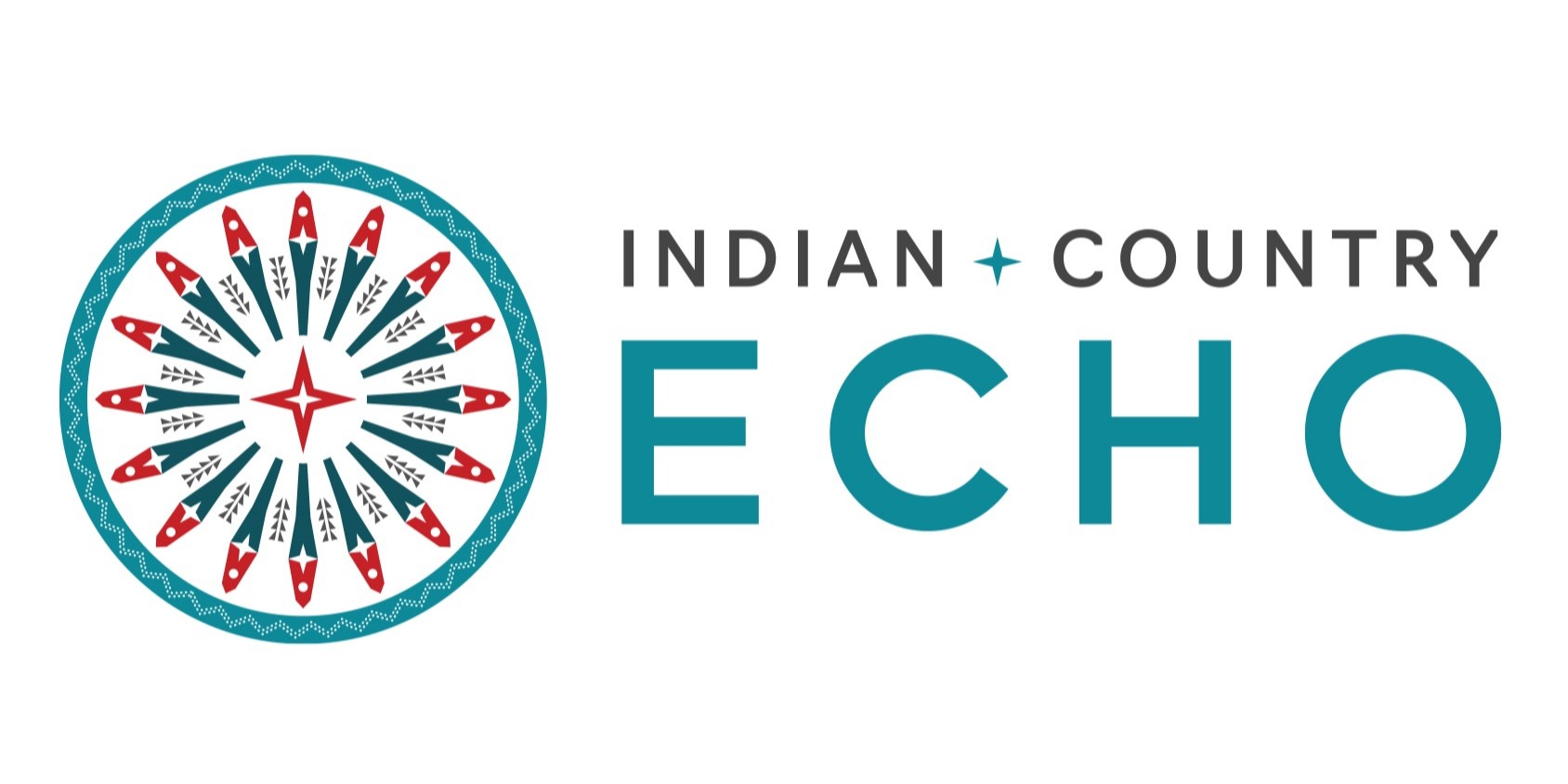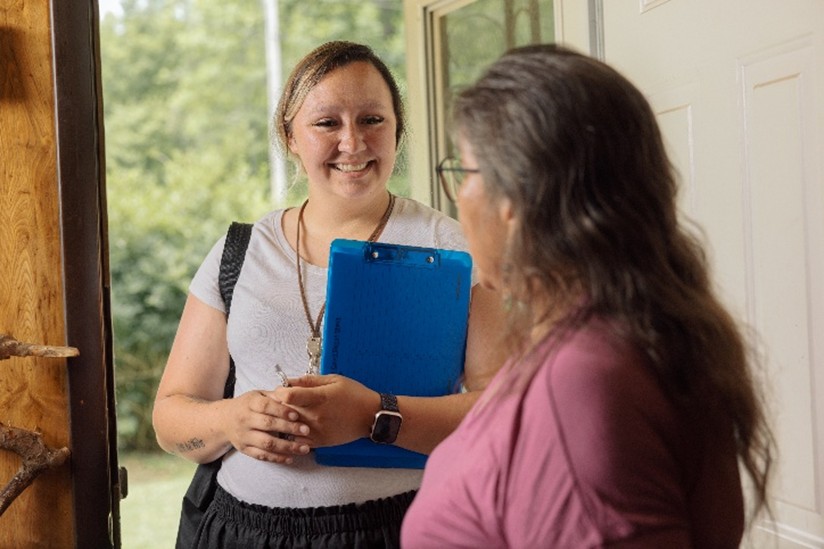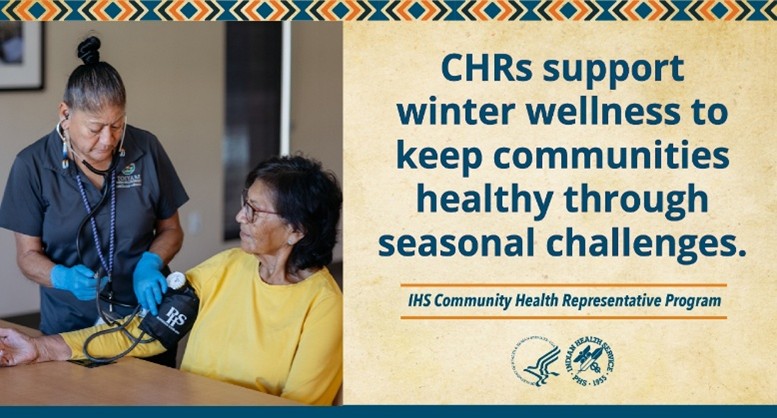CHR Newsletter

July 2025
Report on Medicaid Reimbursement for CHR Programs
CHRs contribute skills and relationships that help improve care coordination and outcomes in American Indian and Alaska Native communities. Medicaid reimbursement for CHRs and other Community Health Workers (CHWs) offers...Read more
July 2025
CHR VIDEO: Public Health and Health Care Partnerships Improving Health Outcomes
A four-part video series offers a comprehensive look at CHRs, their functions, and the critical role they play in health care...Read more
July 2025
Event: National Cancer Prevention, Screening, and Care Conference
The Indian Health Service National Cancer Prevention, Screening, and Care Conference will bring together a cross-section of disciplines and individuals to collaborate, discuss, and identify strategies to address cancer prevention... Read more
June 2025
IHS National Clinical and Community Workforce Summit Recap
The IHS CHR Program led a series of sessions during May's National Clinical and Community Workforce Summit in Seattle, WA. These sessions...Read more
June 2025
CHR VIDEO: "We Talk It, We Live It, We Speak It"
CHR programs help bridge health systems and the communities they serve, while working to keep cultural traditions strong. In... Read more
June 2025
National Women's Health Week
In case you missed it, National Women's Health Week in May reminded us that women's wellness is about more than just checkups—it's about... Read more
May 2025
CHRs Enhance Public Health Across the Country
IHS's CHR Program is recognizing community health projects that highlight the important work communities do to improve public health. With more than 1,600 CHRs serving over 250 tribes...Read more
May 2025
CHR Videos: Workforce Impact in Communities
The IHS CHR Program highlights CHR work in a new educational video series. The first video examines the CHR program at the national level from the perspective of CHRs...Read more
April 2025
CHR Shares Stories through Videos on Empowerment, Culture, and Partnership
To raise awareness about the role of CHRs, the IHS CHR Program created a video series highlighting their diverse stories, experiences, and insights...Read more
April 2025
National Public Health Week: April 7-13
CHRs ensure American Indian and Alaska Native people can find care, navigate...Read more
April 2025
Online Indian Country CHR ECHOs Available
Topics include a three-part series on health conditions and approaches...Read more
March 2025
Community Health Representative Program Looks Forward To 2025
CHR closed out a successful 2024 and will use its Strategic Plan as the foundation for the new year. In 2025...Read more
March 2025
CHRs Support Wellness
For the season, CHRs encourage flu prevention, follow-up care for managing chronic conditions, and more... Read more
MORE INFORMATION
- Join our CHR LISTSERV to stay connected and get our latest newsletters delivered to your inbox!
- Find out more about CHR by reading our 2024 CHR Newsletters










